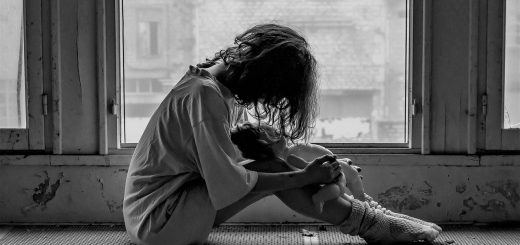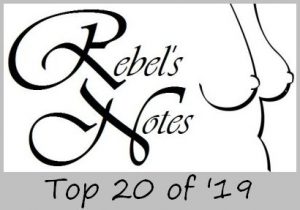Forgiveness, Anger and Healing

For many people, forgiveness is a vital step in accepting past hurt, and giving oneself a chance of moving on. It is often misunderstood as an act of absolution from someone’s abuse or mistakes, but in practice it is an act of letting go of thoughts and feelings that can set a stop for growth. It is a change in the perspective of a past event. Forgiveness is linked to feelings of anger and hurt. There are overthinking and thoughts of revenge. Not only do a lot of trauma survivors struggle with forgiving past abusers, even more common events like family quarrels, lies, hurtful behaviour like cheating or breaking up with someone, are in need of a forgiving attitude for any chance of moving on.
Anger, Hurt, Grudges and Revenge
I have never felt the need to forgive anyone for having hurt me. And I think that is a result of my inability to feel anger and that I find thoughts of revenge very off-putting. People would most likely expect me to hold on to a sort of resentment and anger. I had to endure severe abuse for years as a child, and then later as a teenager as well. So it would make sense that I wanted revenge or was angry about that. That I would hate my abusers, or would want to see them suffer. Only, I do not.
I feel hurt because of my trauma, of course. The flashbacks and fears that I have to deal with are a representation of that. But I don’t want the people who have hurt me to suffer. So I am not even at the starting point where forgiveness often begins: the focus of anger and hurt on a particular person or group of people. I am hurt by the abuse, but I am not angry at the abusers for that.
I think a lot of that has to do with my inability to feel anger. See, I can feel angry for a thing that happens in the now, of course. I can feel anger on behalf of others. But I don’t hold on to it. As a matter of fact, I am scared of it. Ironically enough, my fear of anger is very closely linked to my trauma. My biggest triggers are anger, aggression, intimidation and threats. And I could never become a person who is like that. Feeling anger or feeling aggressive scare me, so when I feel that way, I quickly try to resolve the feelings so I don’t get consumed by them. I don’t want to act like my abusers have, I don’t want to feel like my abusers have.
And that is also the reason why I don’t hold grudges or seek revenge. The two traits and behaviours are very unattractive to me in other people. I just can’t relate to them and they confuse me. They make a person ugly to me, because they are unable to let go of hate, and they have fantasies of hurting someone, basically sinking to the level of the person who has hurt them. I don’t necessarily mean having compulsive thoughts of revenge that many trauma survivors have to deal with and need to overcome. I mean when someone is planning on getting back at their ex for cheating on them, or someone planning a huge revenge schem to hurt the person who has called them a name, or who they feel mistreated them.
Revenge is ugly and unattractive and doesn’t make you look like a good person, in my eyes. I don’t mean thoughts of revenge, but actually acting them out. And I validate anger. It is a common emotion and a healthy feeling, but yet again, the behaviour often triggered by anger is unattractive. I wouldn’t want to be around around angry people who can’t control their behaviour or even plan to hurt other people. I am not a supporter of an eye for an eye.
So I think that the need for forgiving someone who has hurt you, or mistreated, is based on unresolved feelings of anger and uncomfortable thoughts of revenge. And because I don’t experience either, my need for forgiveness to be able to move on is sort of non-existent at this point. I understand, and support, that many other people are different, and that they need to get to a point where they can let go of the negative feelings connected to the person who has hurt them, so they can move on.
Forgiveness, Absolution and Acknowledgment of Hurt
A very important point is that forgiveness should not be given to the person who has hurt you, to help them on their journey. It should be about you and your own journey. Those that seek out the people who have hurt them to tell them that they have forgiven them, might be risking their own mental health. Because lots of people assume that receiving forgiveness is an absolution from the mistakes that have been made. It is not. Forgiveness is about the one who got hurt, and their own healing journey. If you hold on to the negative feelings, they will eat you up, you need the forgiveness to find closure, coming from yourself. You don’t need the abusers or the person who has hurt you for that.
But I also know that many people are not even aware of that that is what they need to do. Instead, they are stuck with questions of “why” and wait for an apology or an acknowledgement of the hurt. I feel like that would give the person who has hurt you power over your healing, and you might just never get those things from them. Healing from trauma, and healing from hurt, needs to come from you. You are in control of it, you have the power to work through the feelings and to let go of the anger.
Being stuck with the hope, often desperately, that the abuser or the person who has hutt you, will apologize in a way that it will give you closure, can be so very painful. Or even just seeking acknowledgement. Because it might never come, or it will never be expressed in the way that it will help you with your healing.
My sister had at one point sought acknowledgment from my “father” for the pain he had caused her. His response was to minimize the things that had happened, saying that it wasn’t so bad and that she is overreacting. My sister had a breakdown that took her a long time to recover from. Her experience has definitely opened my eyes to the fact that my healing needs to come from myself, and that I shouldn’t allow my abuser to have any sort of control over me anymore. (This poem sort of expresses those feelings)
Indifference
I don’t feel the need to forgive my abusers, because I don’t experience anger or revenge thoughts. For a longer while, I felt hatred though, and confusion. I hated the people who had hurt me, and I was confused about why they would do those things to me. What did I do to make them abuse and hurt me? Are they evil? Or am I weak and play the victim? But eventually, I just felt nothing for them anymore. I feel indifferent about the people who have hurt me. I don’t care about them enough to want them to get punished for what they have done to me. They are unimportant to me, and my healing. I feel nothing when thinking about them.
I don’t know if that is related to my dissociation. When I dissociate, I dissociate from strong emotions. My brain does that automatically, it is a defense mechanism. And the dissociation makes it impossible for me to feel the emotions, I am removed from them. They are not part of me anymore. It is like someone pressed a pause button, and I am floating in my own reality. So I am wondering if my indifference is just that: I am dissociated from the feelings of anger, and the thoughts of revenge, and the hatred, and the fear. I hope that is not the case because if it were, then I would have to experience those emotions at one point and work through them. For now, I want to believe that what I feel is indifference, and that it is not dissociation.
I feel triggered when I think about the things they have done to me, and yes, when they are around me or I am in touch with them.Their presence triggers those memories. So I have removed myself from those who have hurt me, to protect my own mental health, and so I can move forward. As I said before, I don’t believe that my abusers need to be part of my healing. I don’t need their acknowledgment for my healing. Every now and then, I wish I had it though, not specifically for forgiveness, but so I can get a validation that things really happened and that I’m not making it all up, and that it makes sense that I am such a mess because of it all.
Fawning
When someone hurts me, I go into a fawning mode. That means that I soothe the person hurting me by validating their feelings and trying to calm them down. I don’t stand up for myself in conflict or when someone is hurting me. I become small, I become silent, I don’t voice my hurt. And I am scared of further hurt, and it is a way to protect myself. This is called the fawning response and is very common in those who have been through complex trauma.
I don’t blame the person that hurts me. And I don’t get angry. I get scared, and I take the blame. I just want the conflict to be over. And I don’t care if they have hurt me, I don’t care if they are objectively wrong. I just want to avoid further hurt and conflict, and want it all to be over. Instead of the need to point out that they have hurt me, and then eventually working on forgiveness so I can move on (and maybe they feel better), I just want peace and forget about it all.
I am very aware of that this is an unhealthy approach to conflict and hurt. But it is not something I have learnt to control yet. I don’t want conflict, and I’d do almost anything to avoid it. So I don’t see fault in the other person’s behaviour, but in my own, for making them hurt me.
Forgiving Myself
And that leads to me the one area where I feel forgiveness could be helpful for me. I struggle quite extensively with self-blame and toxic shame. I am asking myself over and over why I didn’t ask for help. Why I didn’t fight back harder, why I didn’t stop the control the abusers had over me. And in my darkest hours, I blame myself for what has happened to me. Because surely I must have triggered them, poked them, enticed them or annoyed them so they would hurt me? While I see that the last set of thoughts is wrong and needs to be questioned, I need to forgive myself for not having done enough to get away from the abuse.
I know that when you go through trauma as a child, especially when in connection with a parent, you end up in a sort of situation similar to Stockholm Syndrome. You are stuck with the person who is hurting you, and when there is no trusting adult or way out, then you give up and instead start appeasing the abuser, live by their rules and don’t even understand that there is another way to live. Because a parent is supposed to teach you how to survive in the world, and the only world that you know is one of abuse and trauma.
And then later, when you are more exposed to the world, you don’t question when other people hurt you. I mean, it doesn’t feel great but isn’t it that the way life is, for everyone? Imagine the shock and despair when you start realizing that life is not like that for everyone, and that what has been done to you was actually wrong.
I need to forgive myself for not knowing better, and for not realizing things earlier. I need to forgive myself for not having saved my younger sister and myself from hurt that could have been avoided. There is self-blame, there is a feeling that I deserved it, there are the thoughts around my weakness. Deep down, I understand that I am not to blame.
But I am stuck with what if-thoughts, with disappointment that I didn’t try harder to get away. So I need to learn to forgive myself that I didn’t do more. I already know that I couldn’t have done more, but it needs to sink in. Having the emotional logic (I am to blame) fight with rational logic (I behaved like a victim of abuse, there was nothing I could have done) fight with each other is exhausting. And I feel that forgiving myself and realizing that I have done the best I could have done, could be important for my healing.
I don’t feel the need to forgive the people who have hurt me. Instead I feel indifference towards past abusers, and want to fawn those who hurt me. I don’t experience strong feelings of anger towards others, and I find revenge appalling. Instead, I do need to learn to forgive myself, because I am the target for my blame and hatred. My thoughts are personal to me though. Everyone needs to find out what works for their own healing. And if I have hurt someone, I am more than willing to take responsibility and acknowledge the hurt that I have caused, if that is what the person needs to be able to move on. I don’t seek out forgiveness, I learn and do better in the future. Because, let’s be honest, we are all the bad guy in someone’s story: we all have hurt others, even if only unintentionally.










very interesting. and this is so true whether or not we want to believe it ;
“Because, let’s be honest, we are all the bad guy in someone’s story: we all have hurt others, even if only unintentionally.”
Yeah, exactly: however hard we try, we all end up unintentionally hurting other people in one way or another. It is a human thing. The importance lies in learning from the mistake we make!
Thank you!
I think you are right that lots of people misunderstand how it works and hold on to their feelings. I thought you explained this really well and very clearly and I imagine that it will be helpful to those who read it. 😊
Our general idea of forgiveness is just very closely linked to the religious “absolution”, but that is not what it is anymore. It is a way to let go of negative feelings so we can move forward. Thanks, Missy!
Great post – I hate loud things – so someone shouting at me in that moment will make my insides rage and the first time it happens I will always think it is my fault and as soon as it stops and a new day begins – I have forgiven them and look at how I can help the situation not occur again. The trouble is of course I don’t forget, which is sensible as we need to learn – but if they then shout/hurt what ever again – I will feel rage – but still forgive and be fine, but ponder as why it happened twice. And, of course remembering means u may see a pattern and that is a whole other issue. At this point I feel indifference- which you talk about – which can prove dangerous if it is a partner.
I also don’t do revenge. I have had that done to me and it is nasty. I hurt my kids dad badly. He put in years of revenge. Wore both him and me out.
And I so agree – forgiveness is about your journey not theirs.
May xx
Gosh. I can so relate to hating loud things. Yelling and shouting are terrible for me and I either freeze or walk away.
It is interesting that so many of us end up blaming ourselves instead of actually trying to set up boundaries for behaviour that is hurtful to us.
I am sorry to hear that your ex was out for revenge. I find that to be very unattractive and toxic behaviour. Ugh.
I think your concluding paragraphs are very important. It feels like you’re not quite sure about things in regards to your abusers and your feelings, questioning if you are simply indifferent or dissociating. But perhaps none of these matter all that much and perhaps you will never find the answer there. Instead, like you conclude you have to learn to forgive yourself because while it isn’t your fault, you are the target for your blame and hate. I hope you’ll be able to do that fully one day. You deserve that, you really do
Thanks, ML! I guess it really doesn’t matter if I am feeling indifferent because of dissociation or because I genuinely don’t care anymore. As long as my feelings don’t suddenly take over, it is all good, hehe.
Yeaaaah, forgiving myself is going to be really difficult because I am easily stuck in self-blame.
The post is so great and deep, Devie! It nade me think about this topic more closely
Thank you, Lisa 🙂